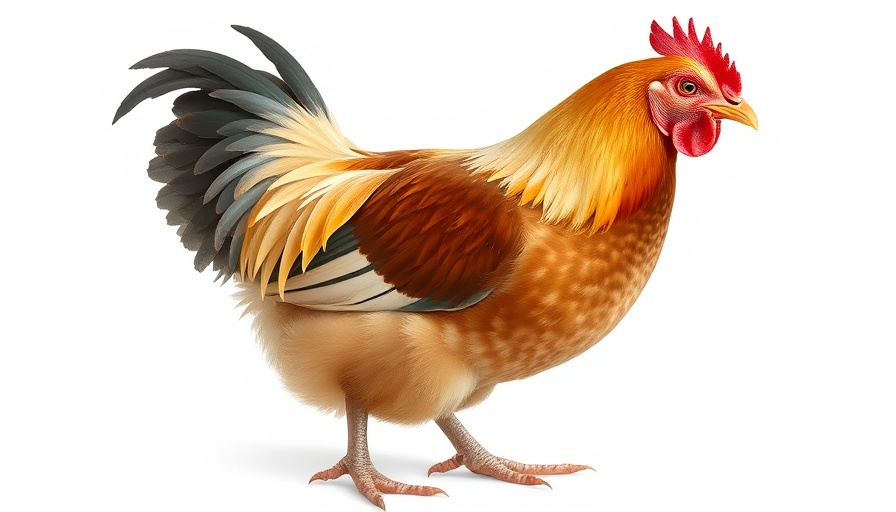
Dominique Chickens: A Testament to Heritage and Harmony
In the vibrant world of poultry farming, the Dominique chicken stands as a unique emblem of America's agricultural heritage. Known as one of the oldest chicken breeds in the United States, Dominiques are more than just a breed; they represent a rich history that dates back to colonial times. Their striking plumage—a beautiful mixture of black and white bars—combined with a friendly demeanor, makes them a favorite choice among poultry enthusiasts.
The Benefits of Raising Dominique Chickens
For poultry managers and suppliers looking for efficient and compliant solutions, Dominiques offer both utility and charm. This breed is renowned for being hardy, easily adaptable to various environments, and, importantly, good foragers. These traits lower feed costs, which is a significant consideration in today’s poultry industry. Dominiques also lay medium-sized, brown eggs that are highly sought after!
Animal Welfare and Sustainability Considerations
In an era where animal welfare is paramount, choosing breeds like the Dominique can be a step towards more sustainable poultry practices. Their low-stress temperament makes them easier to manage, resulting in healthier flocks. Furthermore, their foraging nature can enhance pasture utilization, contributing positively to the sustainability of poultry operations.
Preserving a Legacy: Why It Matters
The revival and maintenance of heritage breeds, such as the Dominique chicken, is not only beneficial for farm efficiency but also essential for biodiversity. When managers opt for heritage breeds, they contribute to a diverse gene pool necessary for the resilience of poultry against diseases and changing climate conditions.
Conclusion: Embrace Heritage in Practice
Integrating Dominique chickens into your farming operations can lead to numerous benefits, from enhancing animal welfare to lowering operational costs. As professionals in the poultry industry, consider championing this charming breed as a pathway to richer agricultural practices. The past can offer valuable lessons for the future of poultry farming by ensuring we maintain the sustainability and diversity that our ecosystem needs.
 Add Row
Add Row  Add Element
Add Element 



 Add Row
Add Row  Add
Add 
Write A Comment